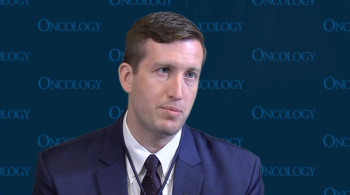
Benjamin Cooper, MD, discussed an ongoing trial examining TAK-676 in combination with pembrolizumab after radiation therapy for patients with non–small cell lung cancer, head and neck cancer, and triple-negative breast cancer.

Your AI-Trained Oncology Knowledge Connection!


Benjamin Cooper, MD, discussed an ongoing trial examining TAK-676 in combination with pembrolizumab after radiation therapy for patients with non–small cell lung cancer, head and neck cancer, and triple-negative breast cancer.

Experts share their thoughts on recent advances in treatment options for metastatic renal cell carcinoma and comment on emerging data in the field.
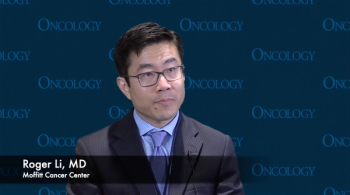
Roger Li, MD, spoke about responses from the CORE1 trial that examined patients with non–muscle invasive bladder cancer treated with CG0070 plus pembrolizumab.

After identifying several factors independently associated with the risk of breast cancer–related lymphedema following axillary lymph node dissection, investigators recommend further studies to examine biologic mechanisms behind racial and ethnic disparities within this space.

Based on results from the phase 3 TRANSFORM trial, the FDA has approved lisocabtagene maraleucel for the second-line treatment of relapsed/refractory large B-cell lymphoma.
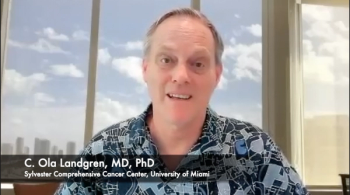
C. Ola Landgren, MD, PhD, highlights the rationale for the phase 3 DETERMINATION trial, assessing the use of lenalidomide, bortezomib, and dexamethasone plus autologous stem cell transplant and lenalidomide maintenance in patients with newly diagnosed multiple myeloma.
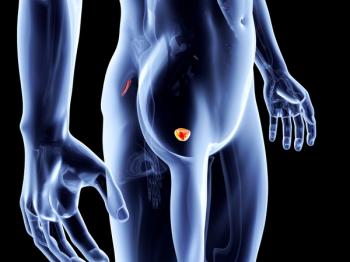
Patients with high-risk prostate cancer appeared to derive benefit from androgen deprivation therapy given for a minimal duration of over 18 months plus external beam radiotherapy.

Data presented at the 2022 European Hematology Association Congress demonstrated potential utility of the bispecific antibody RG6234 in a previously treated cohort of patients with multiple myeloma.

Patients with fully resected stage IIB or IIC melanoma can now receive treatment with pembrolizumab in the adjuvant setting following its approval by the European Commission.
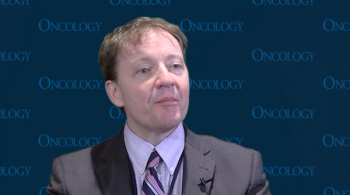
Steven J. Chmura, MD, PhD, spoke about interesting findings from a phase 2R/3 trial of patients with newly oligometastatic breast cancer who were given standard of care systemic treatment with or without stereotactic body radiotherapy and/or surgical resection.
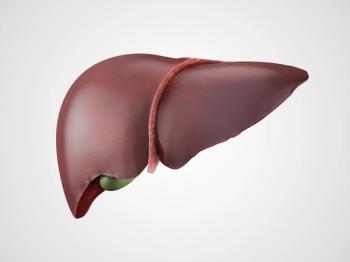
Individuals with nonalcoholic fatty liver disease–related hepatocellular carcinoma were found to have lower rates of surveillance vs other potential causes of disease.

Patients with metastatic cancer had improved health-related quality of life, physical function, and symptom control at 3 months when a weekly electronic patient reported outcomes survey was used.

Dabrafenib plus trametinib may now be used to treat patients with BRAF V600E–positive solid tumors who have no suitable alternative treatment options following its approval by the FDA.

Roger Li, MD, spoke about the mechanism of action of CG0070 used in combination with pembrolizumab to treat patients with non–muscle invasive bladder cancer who were unresponsive to bacillus Calmette-Guerin.

Patients with previously untreated chronic lymphocytic leukemia experienced minimal residual disease negativity following treatment with venetoclax and ibrutinib.

The following was recently published in ASTCT’s Nucleus publication. Follow @ATSTCT for the latest on all-things cellular therapy.

Endometrial cancer survivors experienced clinically significant weight loss after participating in a behavioral weight loss program.

Based on results from the phase 2 GEOMETRY mono-1 trial, the European Commission has approved capmatinib for patients with non–small cell lung cancer who have MET exon 14 skipping mutations, and a need for systemic therapy following prior treatment with immunotherapy and/or platinum-based chemotherapy.
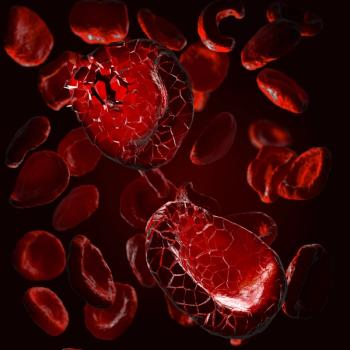
Patients with relapsed/refractory multiple myeloma experienced promising responses with REGN5458.

Treatment with 177Lu-PSMA-617 resulted in poor outcomes for patients with metastatic castration-resistant prostate cancer whose tumors had little to no prostate-specific membrane antigen expression.

Results from the phase 3 AENA trial led to the United Kingdom’s Medicine and Healthcare products Regulatory Agency accepting a marketing authorization application for aumolertinib for review in patients with locally advanced or metastatic non–small cell lung cancer with activating EGFR mutations, and those with locally advanced or metastatic EGFR T790M mutation–positive non–small cell lung cancer.

Results from the WSG-ADAPT-HER2+/HR- study showed promising survival rates with pathological complete response when patients with HER2-positive, hormone receptor-negative early breast cancer were treated with a de-escalated dose of trastuzumab plus pertuzumab without or without paclitaxel over a 12-week period.
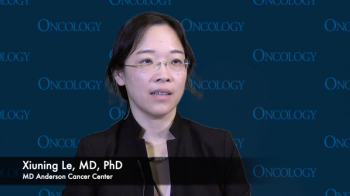
Xiuning Le, MD, PhD, spoke about the use of ctDNA biomarkers and why research should continue for those with advanced non–small cell lung cancer with high MET-amplification being treated with tepotinib.
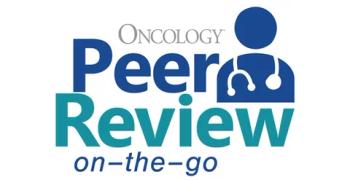
Nora Janjan, MD, MPSA, MBA, spoke with CancerNetwork® about the latest perspective from the journal ONCOLOGY® on how roles and responsibilities of academic clinicians in reporting of conflicts of interest influence oncology research.

Xiuning Le, MD, PhD, spoke about unmet needs in patients with advanced non–small cell lung cancer with high MET-amplifications and why tepotinib may be a good treatment option.

Older patients with acute myeloid leukemia who were treated with decitabine experienced comparable outcomes vs daunorubicin and cytarabine.

Nutritional markers such as body mass index, weight loss, and albumin should be assessed to identify pre-operative malnutrition in patients with gynecologic cancers.
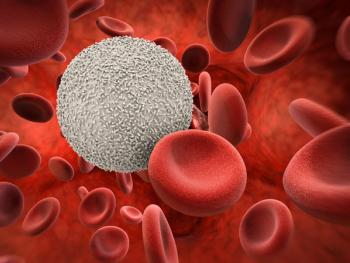
The highly selective JAK inhibitor momelotinib is being considered for the treatment of patients with myelofibrosis by the FDA following submission of a new drug application for this indication.

A panel of experts from Emory University review several key data updates in multiple myeloma from recent meetings and discuss how the data can be applied to clinical practice to improve patient outcomes.

A panel of experts review two patient cases to elucidate data in the adjuvant setting of non–small cell lung cancer.